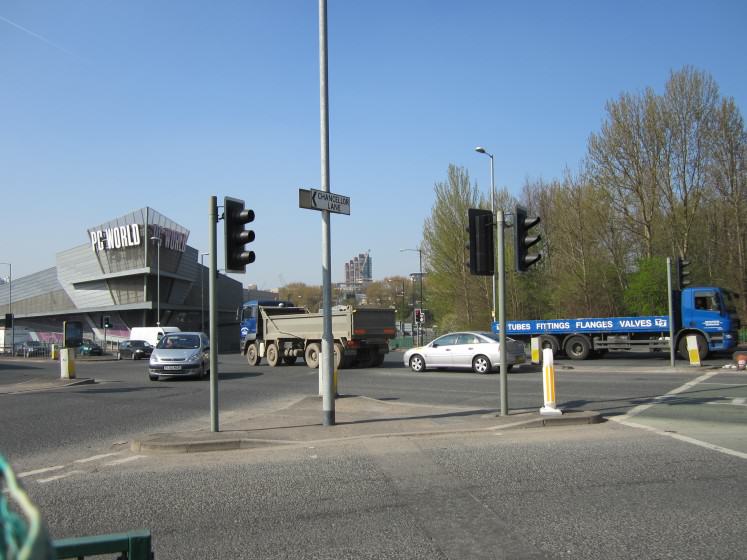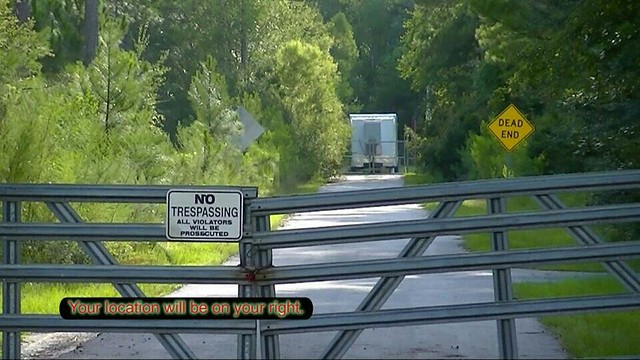Some of this is happening locally: Valdosta is planting trees along Hill Avenue,
Lowndes County is building
Naylor Park with a boat ramp that will be part of the
Alapaha River Water Trail and VLPRA has long been thinking about a blueway
on the Withlacoochee River, where it already has a string of parks and ramps.
Valdosta has the
Azalea City Trail across several parks and VSU.
Imagine if that Trail extended a little farther on each end, connecting the
Withlacoochee River and the Alapaha River: a greenway between two blueways.
Imagine if Lowndes County planted trees in that concrete median in Bemiss Road.
Imagine a bus running down that parkway….
Janice Astbury, the nature of cities, 29 March 2015,
Green Transport Routes Are Social-Cultural-Ecological Corridors,
 …natural corridors do not appear on the standard online GPS
systems that people increasingly use to plan their routes. In other
cases, the path is suddenly interrupted by infrastructure hostile to
pedestrians and cyclists. It is clear that green and active
transport routes are an afterthought, an add-on, rather than a core
part of the city’s transport strategy.
…natural corridors do not appear on the standard online GPS
systems that people increasingly use to plan their routes. In other
cases, the path is suddenly interrupted by infrastructure hostile to
pedestrians and cyclists. It is clear that green and active
transport routes are an afterthought, an add-on, rather than a core
part of the city’s transport strategy.
Local government should invest in developing and maintaining the
natural connective tissue of the city. In the same way that
significant investment is made in arterial roads because they are
believed to serve everyone and to connect up vital places, so
inviting connective green infrastructure should be supported. The
canals, footpaths, and cycleways that provide routes for active
transport should appear prominently on maps and signage. Whole
systems should be indicated when possible, even when portions of
them are currently inaccessible, in order to enhance system
understanding, and to encourage thinking about connecting up
fragmented corridors.
Few people complain when a county or city spends millions of dollars on Continue reading →
 Appeal today if you think there’s more to land (or business)
and woods and fields and streams than money,
unlike the Tax Assessors, whose revaluation would drive development
into agricultural areas of the county where it doesn’t belong,
while avoiding populated areas such as the south side of Valdosta.
We can expect pipeline companies and utilities from other states
to think nothing of pillaging our lands for their profit.
We shouldn’t expect that of our neighbors whom we elected Tax Asssessors.
If you have affection for your land, your county, your neighborhood,
today’s the deadline
to appeal your valuation.
And there will be an election later.
Appeal today if you think there’s more to land (or business)
and woods and fields and streams than money,
unlike the Tax Assessors, whose revaluation would drive development
into agricultural areas of the county where it doesn’t belong,
while avoiding populated areas such as the south side of Valdosta.
We can expect pipeline companies and utilities from other states
to think nothing of pillaging our lands for their profit.
We shouldn’t expect that of our neighbors whom we elected Tax Asssessors.
If you have affection for your land, your county, your neighborhood,
today’s the deadline
to appeal your valuation.
And there will be an election later.
Whatever has happened in what economists call “the economy,” it is generally true that the land economy has been discounted or ignored.









